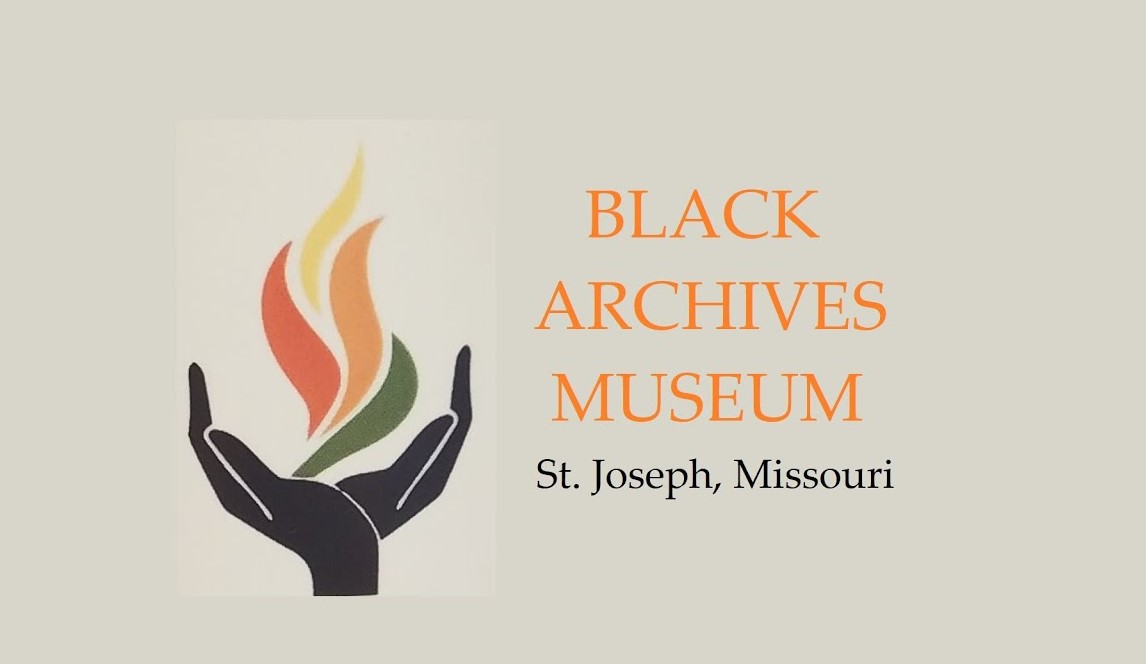As one in a collective of five museums at two locations in St. Joseph, Missouri, the Black Archives Museum educates and inspires guests with its focus on and celebration of the city’s African-American residents. Its scope extends from the antebellum and Civil War period to post-Civil Rights Movement. Both popular persons, such as St. Joseph native, jazz legend Coleman Hawkins, and local leaders in the community are recognized.
In the article, “Museum Day” on St. Joseph Museums, Inc. at Smithsonian Magazine, the author jubilantly relays, “A fascinating adventure into an exciting display of history awaits you at the St. Joseph Museums. Located 30 minutes from the Kansas City, Missouri, airport, the St. Joseph Museums offer a full schedule of award-winning exhibits that will stir new thoughts and observations about the shaping of history in the Midwest and across the country. You’ll learn unique stories, enjoy unusual visual art, and gain new insight into a variety of areas.
The St. Joseph Museums offer not just one destination for your day trip, but a family of museums with exhibits to captivate visitors.” One of these museums is the Wyeth-Tootle Mansion at 1100 Charles Street. The other four: Glore Psychiatric Museum, American Indian and History Galleries of the St. Joseph Museum, the Doll Museum and the Black Archives Museum are located at 3406 Frederick Avenue.
The Black Archives Museum, originally known as the Knea-Von Black Archives, was founded by Jewell Robinson in 1991. An educator who taught at the local Bartlett High School, Robinson instructed his students about the significance of Black culture and heritage. He, and later, his wife, Geraldine, educated many until it became a member of the museum collective in 2002.
Topics highlighted for exhibition include The Middle Passage, the Underground Railroad, the Civil Rights Movement and Black entrepreneurship. Videos centered upon the city that may be accessed on YouTube include The Battle at Mound Island. According to the Black Archives’ Museum’s webpage, this historically-based re-enactment details how the “1st Kansas Colored Volunteer Infantry commandeers the Toothman Farm and renames it ‘Fort Africa’. The battle was significant as the first time African-American troops on the Union side engaged enemy white troops in the Civil War.” In the 2014 documentary short, In Their Own Words: An Oral History of African Americans in St. Joseph, fourteen Black and White residents of St. Joseph discuss race and its historic and contemporary impact in their community.
The museum annually hosts several events, such as the Coleman Hawkins Jazz Festival. Honoring the brilliant saxophonist and his global impact, this celebration occurs on the third weekend in June in Coleman Hawkins Park at 701 Felix Street. Free to the public, all proceeds from activities, including a raffle, benefit The Coleman Hawkins Jazz Heritage Society. An objective of this event and fundraising, according to ColemanHawkins.org, is to “go towards keeping arts and music free and accessible to the community. This includes our commitment to fostering music education and allows us to provide a professional stage and sound system for 2 student groups.”
The Black Archives Museum at St. Joseph is open daily, from 10 a.m. until 4 p.m. Self-guided as well as group tours are available. A group tour to visit all five museums is also optional.
This museum is closed on New Year’s Eve, New Year’s Day, Memorial Day, Easter Sunday, Independence Day, Labor Day, Thanksgiving, Christmas Eve and Christmas Day.
